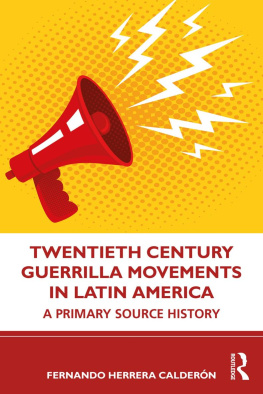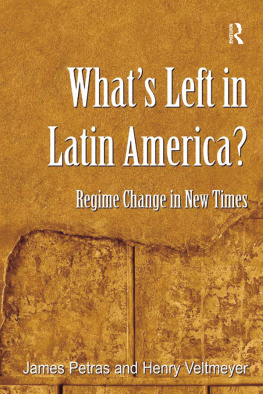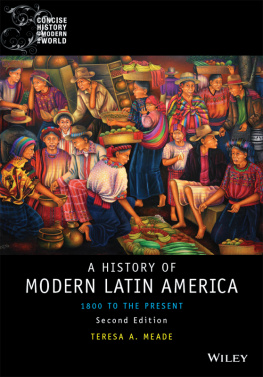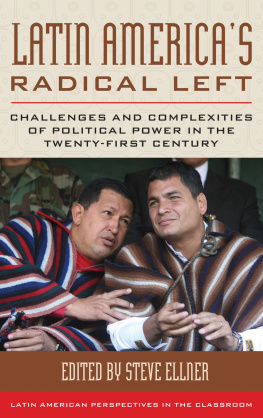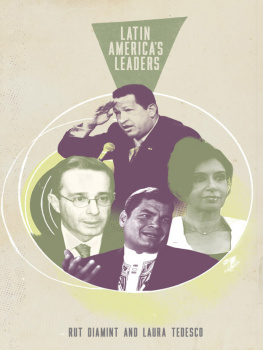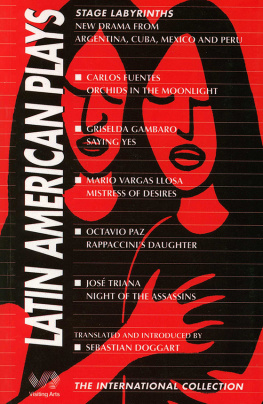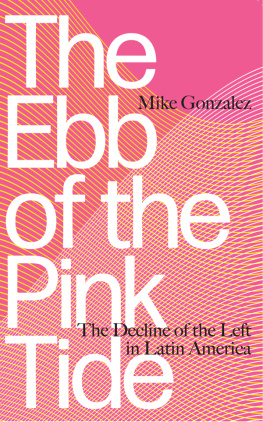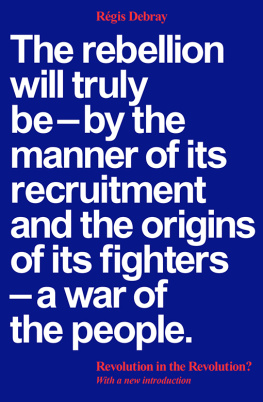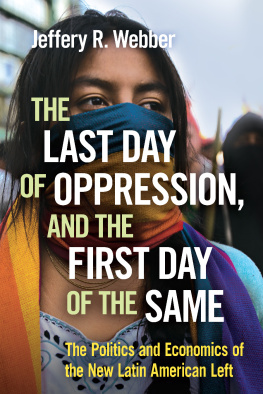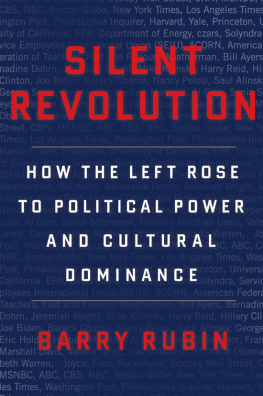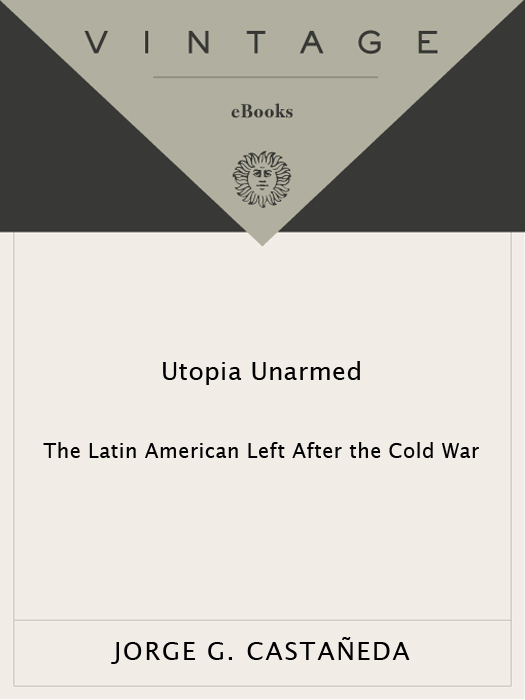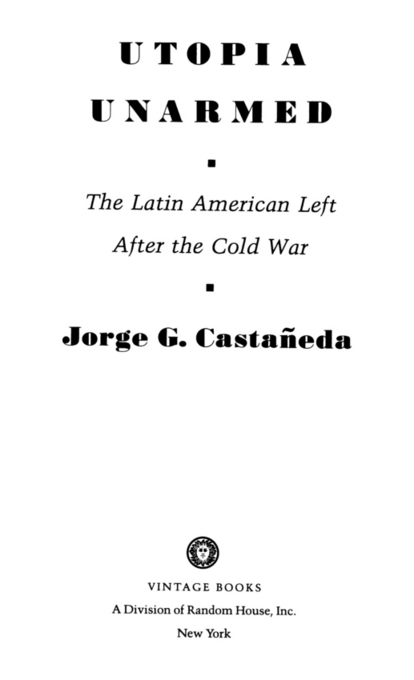Acclaim for Jorge G. Castaedas
UTOPIA UNARMED
Destined to become a classic an insightful, much-needed look at where Latin Americas left is headed and how it must transform itself to remain a political player. No one else has produced a similar workdespite the crying need.
Christian Science Monitor
Range[s] over enormous terrain, both physically and intellectually. Castaeda has put a lifetime of learning into this volume. Often vivid the book reminds us, refreshingly, that the left has been alive in Latin America for a long time.
Washington Post Book World
Utopia Unarmed will be one of the most talked-about political books in decades in Latin America. Castaeda brings to life some of the hemispheres revolutionariesthe last great Quixotes around. A brilliantly argued proposal for all sectors of the left.
San Francisco Chronicle
Eminently humane and reasonable this book deserves to be at the top of any reading list on Latin America. Jorge Castaeda, a well-known Mexican scholar, has written a timely, fascinating and skillfully crafted account of the impact of the end of the Cold War on the Latin American left.
Foreign Affairs
Important fascinating Castaedas expert reading of the Latin American lefts turbulent currents should help readers understand the political ferment that undoubtedly lies ahead.
Business Week
Utopia Unarmed is a timely contribution a devastating critique [by] a leading participant in many of the events which are narrated here of the Latin American left from withincourageous and unsentimental, admirably free of cant, euphemism and evasion.
Times Literary Supplement
Jorge G. Castaeda
UTOPIA UNARMED
Jorge Castaeda was born and raised in Mexico City. He received his B.A. from Princeton University and his Ph.D. from the University of Paris. He has been a professor of economics and of international affairs at the National Autonomous University of Mexico since 1978. He has also been a Senior Associate of the Carnegie Institute for International Peace in Washington, and a visiting professor at Princeton University and the University of California, Berkeley.
Among the six books he has authored or co-authored is Limits to Friendship: The United States and Mexico (1988), with Robert Pastor. He is a regular columnist for the Los Angeles Times, Newsweek International, and the Mexican weekly Proceso.
BOOKS BY Jorge G. Castaeda
Utopia Unarmed
Limits to Friendship (with Robert Pastor)
Copyright 1993 by Jorge G. Castaeda
All rights reserved under International and Pan-American Copyright Conventions. Published in the United States by Vintage Books, a division of Random House, Inc., New York, and simultaneously in Canada by Random House of Canada Limited, Toronto. Originally published in hardcover by Alfred A. Knopf, Inc., New York, in 1993.
The Library of Congress has cataloged the Knopf edition as follows:
Castaeda, Jorge G.
Utopia unarmed: the Latin American left after the Cold War / by Jorge G. Castaeda.
p. cm.
1. Latin AmericaPolitics and government1980
2. New LeftLatin AmericaHistory.
3. DemocracyLatin AmericaHistory.
4. Latin AmericaRelationsUnited States.
5. United StatesRelationsLatin America.
I. Title.
F 1414.2. C 38 1993
320.53098dc20 92-36213
eISBN: 978-0-307-82299-4
v3.1
Contents
1 Travels with Argentina:
Defining the Latin American Left
2 In the Beginning:
Communists and Populists
5 Squaring the Circle:
Reforming Revolution
6 Changing of the Guard:
From Intellectuals to the Grass Roots
8 La Guerre Est Finie:
The Latin American Left and the Fall of Socialism
10 Reformulating Nationalism:
Longitudinally and Regionally
Acknowledgments
This book was made possible by a Research and Writing Grant from the Program on International Peace and Cooperation of the John D. and Catherine C. MacArthur Foundation. I am also deeply grateful to the Department of Political and Social Sciences of the National Autonomous University of Mexico, the institution I have belonged to since 1979, for its ongoing and generous support. I must also thank the Center for Latin American Studies at the University of California, Berkeley, for its hospitality. The Woodrow Wilson School of Public and International Affairs, the Program in Latin American Studies, and the Center of International Studies, all at Princeton University, also provided support during the final stages of the books production.
Many friends and colleagues have taken the time to read parts or all of the manuscript, and to offer critical and helpful suggestions. I wish to acknowledge their contribution, and of course absolve them of any responsibility for the content of the book. My thanks to: Dudley Ankerson, Rgis Debray, Jorge Domnguez, Richard Fagen, Mark Falcoff, Adolfo Gilly, Enrique Guatemala, Enrique Hett, Albert O. Hirschman, David Ibarra, Gwen Kirkpatrick, Casio Luiselli, Francis Pisani, Alan Riding, Jill Roberts, Victor Romeo, Salvador Samayoa, Paco Ignacio Taibo II, and Francisco Weffort.
Ash Green has, once again, been the perfect editor and, more important, a friend. Finally, and as always, thanks go to my family, and particularly to Miriam, without whom nothing is possible, and to Javiera, who read, typed, and researched reams of material.
J.G.C.
Introduction
The Cold War is over and Communism and the socialist bloc have collapsed. The United States and capitalism have won, and in few areas of the globe is that victory so clear-cut, sweet, and spectacular as in Latin America. Democracy, free-market economics, and pro-American outpourings of sentiment and policy dot the landscape of a region where until recently left-right confrontation and the potential for social revolution and progressive reform were widespread. Today conservative, probusiness, often democratically elected and pro-U.S. technocrats hold office around the hemisphere. The United States spent nearly thirty years combating nationalist Marxist revolutionaries where the left was active, influential, and sometimes in control, and where it is now on the run or on the ropes. But then a question arises: If the left is either nonexistent or irrelevant in the postCold War era, why bother with it in Latin America at all, much less devote an entire book to it?
First, out of historical curiosity. How has a current of thought, action, and motivation that has in fact rarely and only briefly governed in Latin America, and that has been mostly subjected to repression, division, and enduring marginalization, generated as much intensity of feeling and as great a sense of peril in the United States, and so much interest and often sympathy elsewhere in the world? Secondly and much more important, the left remains relevant in Latin America because the end of the Cold War and the fall of socialism in Eastern Europe and the Soviet Union have not brought an end to the original causes that gave it birth. If anything, those causes today are more real, more compelling, than ever: poverty, injustice, gaping social disparities, and overwhelming daily violence.



